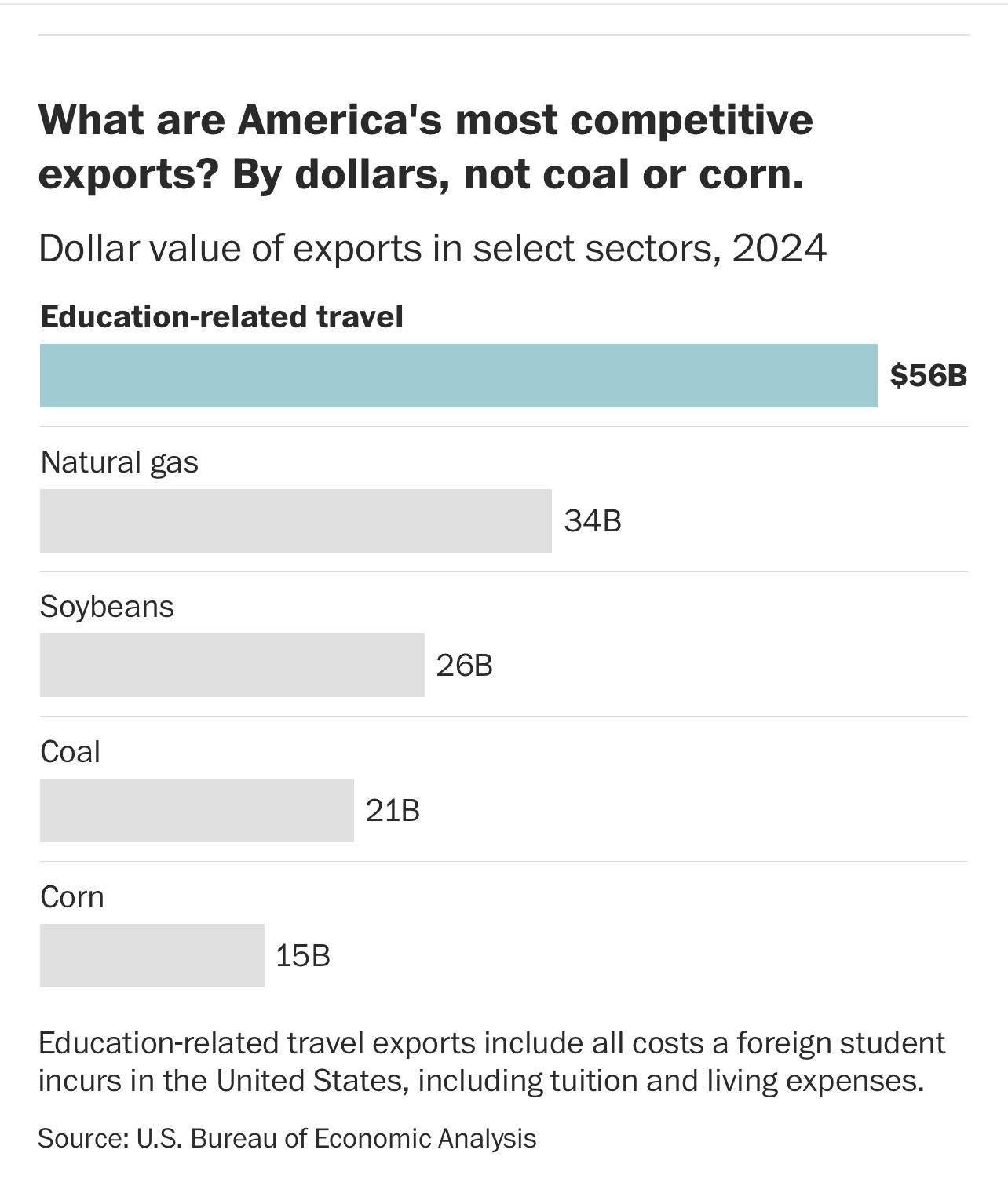What did Donald Trump do today?
He tacitly admitted he'd made a mistake in trying to deport thousands of valid student visa holders.
International students are a major component of American universities' financial health—and for that matter, the economic health of the nation as a whole.

The ability to attract the best students from around the world gives the United States a major competitive advantage. But such students are subject to strict visa rules, even ignoring Trump's legally bankrupt claim that he can deport anyone at anytime for any reason.
Trump has attempted to deport thousands of non-citizen students since taking office. In some cases, it has been for overtly political reasons—for example, a Turkish student who remains in ICE custody for the "offense" of co-signing a letter to her school paper encouraging its administration to take anti-genocide protests seriously. But most of his attempted student deportations have come from the results of criminal background checks run against the SEVIS database which tracks international students.
The problem, as dozens of court orders since have noted, is that the "hits" on such background checks were frequently for incidents in which no crimes whatsoever were committed or even suspected. Students have found themselves at risk of deportation for minor traffic offenses or being involved in non-criminal academic governance proceedings.
Today, after losing virtually every decision in nearly a hundred separate lawsuits seeking protective orders, the Trump administration quietly rescinded the deportation orders for an unknown number of students, suspected to be in the thousands.
The announcement did not say how the erroneous results were generated—and the Trump administration has provided no explanation, even to universities. But a leading theory is that they applied the now infamous "DOGE methodology" of running deliberately naïve database queries that generated spurious results, immediately on a predetermined course of action, and then claiming "administrative error" after being caught. This has led to any number of absurd and at times catastrophic mistakes, ranging from firing employees responsible for securing the nation's nuclear weapon stockpile, to disappearing people living legally in the United States under protective court orders, to freezing billions of dollars in grants for medical research, to (deliberately) declaring living people dead in Social Security records.
Why does this matter?
- An administration that makes this many "errors" is too incompetent to govern.
- Deporting students who bring enormous amounts of money and value to the American educational system for speeding tickets or attending protests would be absurd even if it were intentional.
- Thinking that this population of immigrants is somehow a threat to the United States is a shamefully un-American level of cowardice.